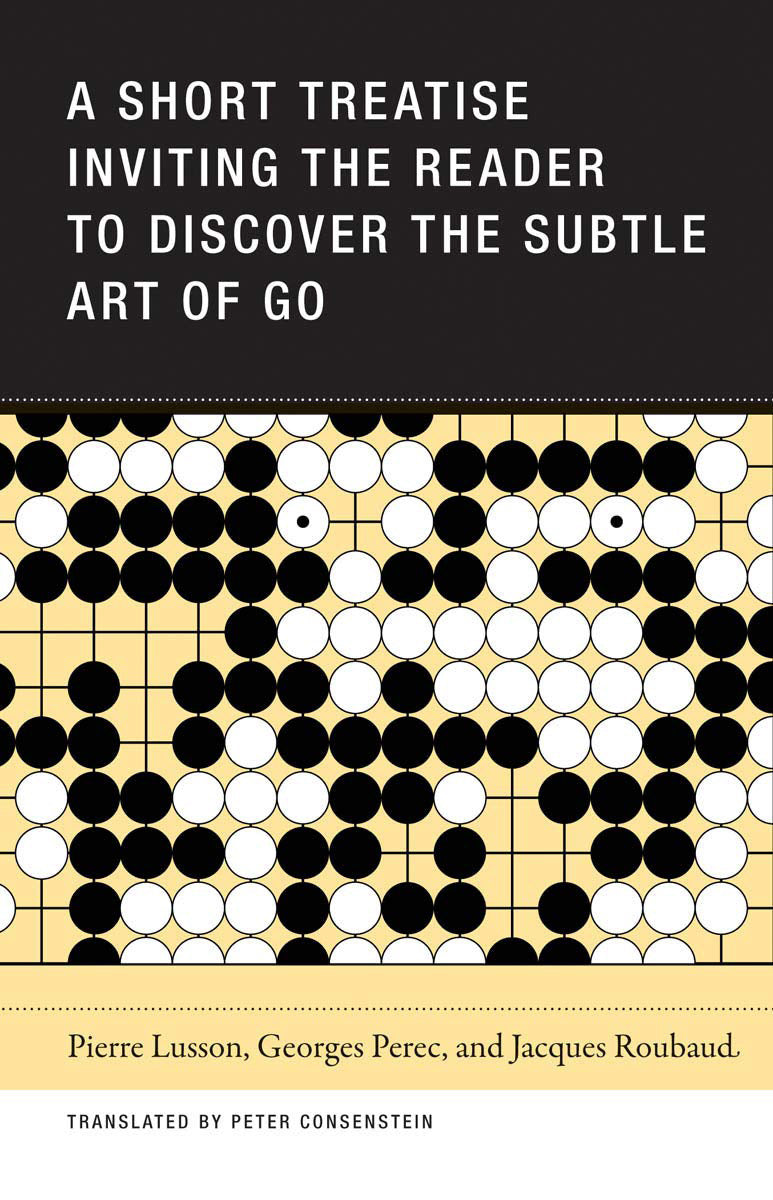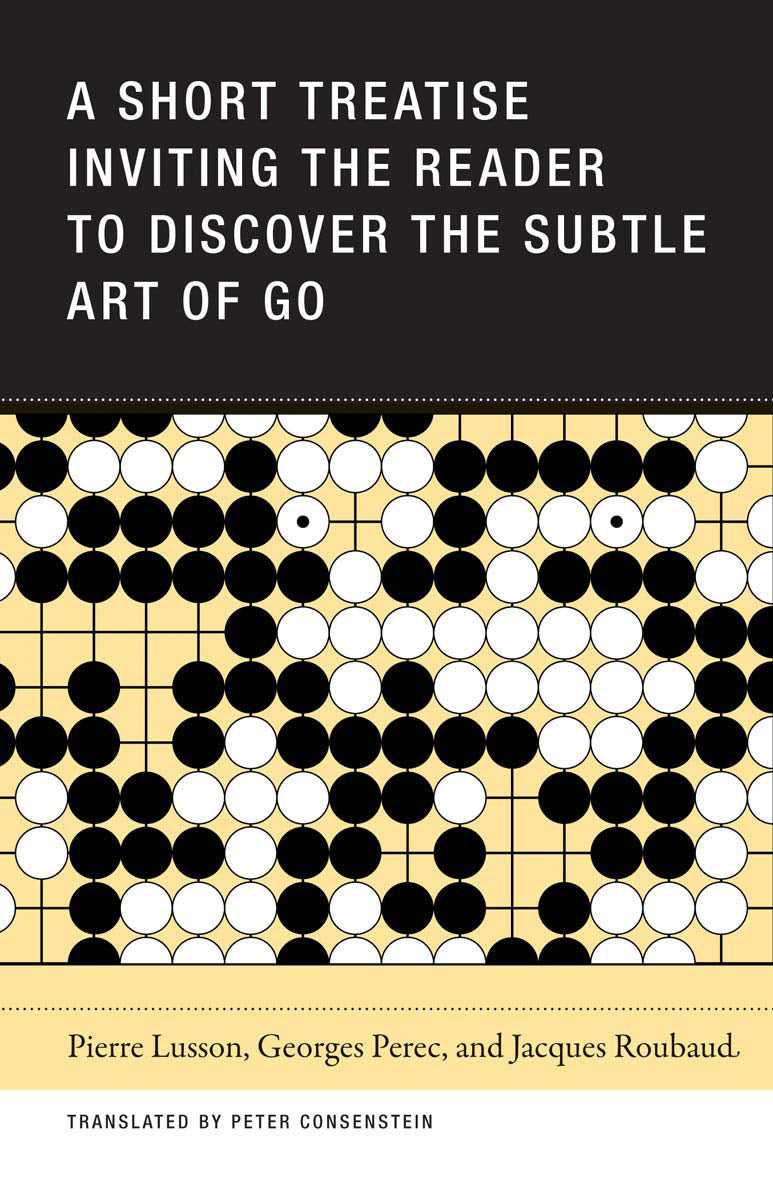A Short Treatise Inviting the Reader to Discover the Subtle Art of Go
A Short Treatise Inviting the Reader to Discover the Subtle Art of Go
Pierre Lusson, Georges Perec, and Jacques Roubaud
Couldn't load pickup availability
By Pierre Lusson, Georges Perec, and Jacques Roubaud / Translated, with an introduction, by Peter Consenstein / August 2019 / 4.5 x 7, 256 pp. / 978-1-939663-43-6
Written by a mathematician, a poet, and a mathematician-poet (two of them foundational members of the Oulipo), this 1969 guide to the ancient Japanese game of go was not just the first such guide to be published in France (and thereby introducing the centuries-old game of strategy into France), but something of a subtle Oulipian guidebook to writing strategies and tactics. Go A User's Manual, or how a set of simple rules and constraints can lead not only to infinite complexities, but also an endless array of writing strategies and bad puns.
As in the Oulipian strategy of writing under constraint, the role of structured gameplay (within literature and without) proves to be of primordial importance: a means of moving outside an inherent system, of instigating new figures of style and meaning, new paths toward collaboration, and new strategies for filling a space: be it the space of a terrain, a blank page, a white screen, or a freshly stretched canvas.
This treatise outlines the history of Go, the rules for playing it, some central tactics and strategies for playing it and overcoming the threats posed by an opponent, general information and trivia, and a glossary that ranges from Atari (check) to Yose (the end of a match).
“Chess is indeed a war, but an institutionalized, regulated, coded war, with a front, a rear, battles. But what is proper to Go is war without battle lines, with neither confrontation nor retreat, without battles even: pure strategy, whereas chess is a semiology.”—Gilles Deleuze and Félix Guattari
Pierre Lusson is a French mathematician and musicologist. With Jacques Roubaud, he helped introduce the game of Go into France.
Georges Perec (1936–1982) was a French novelist, essayist, and filmmaker whose linguistic talents ranged from fiction to crossword puzzles to authoring the longest palindrome ever written. Winner of the prix Renaudot in 1965 for his first novel Things, and the prix Médicis in 1978 for his most acclaimed novel, Life A User's Manual, Perec was also a member of Oulipo, a group of writers and mathematicians devoted to the discovery and use of constraints to encourage literary inspiration. One of their most famous products was Perec’s own novel, A Void, written entirely without the letter “e.”
Jacques Roubaud is a French poet and mathematician, a former professor of Mathematics at University of Paris X, a retired Poetry professor from EHESS, and a member of the Oulipo group. His many books translated into English include The Great Fire of London, Some Thing Black, The Form of a City Changes Faster, Alas, than the Human Heart, and The Loop.
Press
“A nice little curiosity that should appeal equally to Go-aficionados and the Oulipo-obsessed—and can certainly be recommended to anyone wanting to learn about the game.”
—M. A. Orthofer, The Complete Review
“[T]his is no ordinary how-to manual. Nothing is quite what it seems, yet everything is eminently functional. It uses forgery and gossip, strategic theory and irony, adolescent puns and an obsessive love of gaming life that makes the digital tribalists look like cobwebbed sansabelts in comparison. […] To make Oulipoian jokes translatable is a labor equal to that of making the rules and philosophy of Go graspable for the layman. For this beautiful Wakefield Press edition, translator Peter Consenstein has done both with the skill and soul of a Hayashi, Inoue, or Mutabzija.”
—Martin Billheimer, Counterpunch


